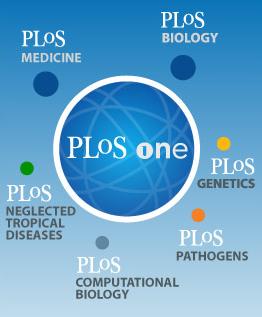电话:010-85111156
手机:15210945929
QQ:37750280
QQ:55017753

PLOS ONE (eISSN-1932-6203) is an international, peer-reviewed, open-access, online publication. PLOS ONE welcomes reports on primary research from any scientific discipline. It provides:
PLOS ONE is published by PLOS, a nonprofit organization.
PLOS ONE is run as a partnership between its in-house PLOS staff and international Advisory and Editorial Boards, ensuring fast, fair, and professional peer review. To contact the Executive Editor, Damian Pattinson, or any of the Publications Assistants (who can be found at our contacts page), please e-mail plosone [at] plos.org. To access everyONE, the PLOS ONE community blog, please visit http://everyone.plos.org
PLOS ONE features reports of original research from all disciplines within science and medicine. By not excluding papers on the basis of subject area, PLOS ONE facilitates the discovery of the connections between papers whether within or between disciplines.
Too often a journal's decision to publish a paper is dominated by what the Editor/s think is interesting and will gain greater readership — both of which are subjective judgments and lead to decisions which are frustrating and delay the publication of your work. PLOS ONE will rigorously peer-review your submissions and publish all papers that are judged to be technically sound. Judgments about the importance of any particular paper are then made after publication by the readership (who are the most qualified to determine what is of interest to them).
PLOS applies the Creative Commons Attribution License (CCAL) to all works we publish. Under the CCAL, authors retain ownership of the copyright for their article, but authors allow anyone to download, reuse, reprint, modify, distribute, and/or copy articles in PLOS journals, so long as the original authors and source are cited. No permission is required from the authors or the publishers.
To provide open access, PLOS journals use a business model in which our expenses—including those of peer review, journal production, and online hosting and archiving—are recovered in part by charging a publication fee to the authors or research sponsors for each article they publish. For PLOS ONE the publication fee is US$1350. Authors who are affiliated with one of our Institutional Members are eligible for a discount on this fee.
We offer a complete or partial fee waiver for authors who do not have funds to cover publication fees. Editors and reviewers have no access to payment information, and hence inability to pay will not influence the decision to publish a paper.
At PLOS, we believe that articles in all journals should be assessed on their own merits rather than on the basis of the journal in which they were published. PLOS journals have therefore initiated a program to provide a growing set of measures and indicators of impact at the article level that will include citation metrics, usage statistics, blogosphere coverage, social bookmarks, community rating and expert assessment. The long-term vision is to bring the views and activities of entire communities to bear, using the wealth of opportunities offered online, to provide new, meaningful and efficient mechanisms for research assessment. For more information on article-level metrics see the PLOS blog.
Each submission to PLOS ONE passes through a rigorous quality control and peer-review evaluation process before receiving a decision. Beginning in 2008, we are providing the following summary data regarding our process. This information will be updated quarterly with the latest data:
Indexing and Archiving
PLOS ONE is indexed in PubMed, MEDLINE, PubMed Central, Scopus, Web of Science, Google Scholar, the Chemical Abstracts Service (CAS), EMBASE, AGRICOLA, PsycINFO, Zoological Records, FSTA (Food Science and Technology Abstracts), GeoRef, and RefAware, as well as being searchable via the Web of Knowledge. In addition, PLOS ONE is formally archived via PubMed Central and LOCKSS.
PLOS is a non-profit organization of scientists and physicians committed to making the world's scientific and medical literature a freely available public resource. For more information about PLOS, visit www.plos.org.